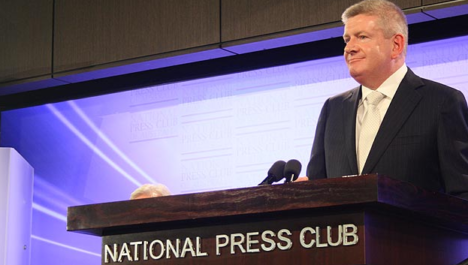Media reforms to go ahead as Senate passes bill
The media reforms bill proposed by the Turnbull Government has passed the Senate.

Communications Minister Mitch Fifield has been behind the proposed media reforms bill, which has finally succeeded.
A removal of broadcasting licence fees, restrictions on gambling advertising in live sporting events across all platforms, and the repeal of the two out of three and 75% audience reach media ownership rules, are included in the approved package.


I know this is breaking but can you include a little detail on the $60m proposed in this bill for small ozzie publishers to promote journalism, innovation etc. Any details guys? Just wondering. Guessing you would be interested as well given your profile. Although maybe your revenues go over the upper limit now!!! Probs not.
thanks
jeremy
Hi Jeremy,
We’re working on a deeper analysis of the reforms now. Stand by.
Thanks,
Vivienne – Mumbrella
Q.And after the three years is up of the $60m handout who will be paying all these trainees moving into full-time reporting roles?
A. No-one. Scrapheap.
Sorry NXT you sold out for a temporary pittance. Hang on, when is the next election? So that explains the three years.
No mention of diversity in the main article picture???